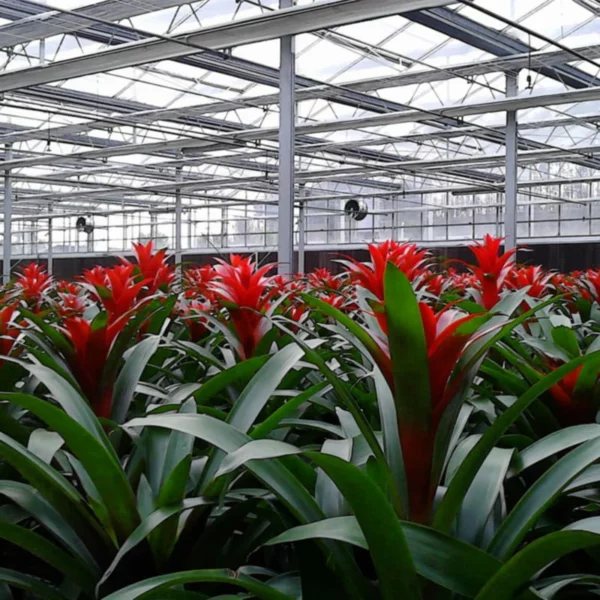Greenhouse glass is a fundamental component of greenhouse structures, playing a crucial role in creating controlled environments for optimal plant growth. With its unique properties and benefits, greenhouse glass has been a preferred choice for growers around the world. In this article, we will explore the purpose and advantages of greenhouse glass, highlighting its contribution to the success of modern plant cultivation.
I. Transparency and Light Transmission:
One of the primary functions of greenhouse glass is to allow natural sunlight to penetrate the structure. Glass is highly transparent, enabling maximum light transmission into the greenhouse. This promotes photosynthesis, the process by which plants convert light energy into chemical energy, facilitating their growth and development. The transparency of greenhouse glass ensures that plants receive an ample amount of sunlight, crucial for their metabolic processes.
II. Insulation and Heat Retention:
Greenhouse glass acts as an effective insulator, trapping heat within the structure. It prevents the escape of warm air and minimizes heat loss during colder seasons or in regions with colder climates. The insulation provided by glass helps maintain stable temperatures within the greenhouse, creating a favorable environment for plant growth. The ability to retain heat is particularly beneficial for cultivating heat-loving plants or extending the growing season.
III. Protection from External Elements:
Greenhouse glass serves as a protective barrier, shielding crops from external elements such as wind, rain, and pests. It forms a physical barrier that prevents direct contact between plants and adverse weather conditions, reducing the risk of damage or disease. Additionally, greenhouse glass provides a level of security by keeping out unwanted animals or intruders, safeguarding valuable crops.
IV. Durability and Longevity
Glass is a highly durable material, capable of withstanding various weather conditions and maintaining its structural integrity over time. Greenhouse glass is designed to endure wind, hail, and UV radiation without deteriorating or losing its transparency. Its longevity allows for extended use, providing growers with a reliable and long-lasting solution for plant cultivation.
V. Aesthetics and Visibility:
Beyond its functional benefits, greenhouse glass enhances the aesthetic appeal of the structure. The transparency of glass allows for a clear view of the plants within the greenhouse, creating an inviting and visually pleasing environment. Greenhouse glass also enables natural light to illuminate the interior, contributing to a bright and attractive atmosphere.
VI. Customization and Flexibility:
Greenhouse glass is available in various types and thicknesses, offering growers the flexibility to select the most suitable option for their specific needs. Different types of glass, such as float glass, tempered glass, or low-iron glass, provide varying levels of light transmission, insulation, and strength. This customization allows growers to optimize their greenhouse environment based on the requirements of their crops and local climate conditions.
VII. Maintenance and Considerations:
Regular maintenance is essential to ensure the optimal performance of greenhouse glass. Cleaning the glass periodically removes dirt, dust, or algae that may obstruct light transmission. Additionally, inspecting the glass for cracks, chips, or other damage and promptly repairing or replacing any compromised sections helps maintain the integrity of the greenhouse structure.
Greenhouse glass serves as a vital component in modern plant cultivation, offering transparency, insulation, protection, and durability. Its ability to transmit natural sunlight, green house glass retain heat, and shield crops from external elements creates a controlled environment conducive to plant growth. Greenhouse glass provides an aesthetically pleasing atmosphere while allowing growers to customize their greenhouse structures based on their specific requirements. With proper maintenance, greenhouse glass ensures the longevity and success of greenhouse operations, supporting the cultivation of healthy and thriving plants.
